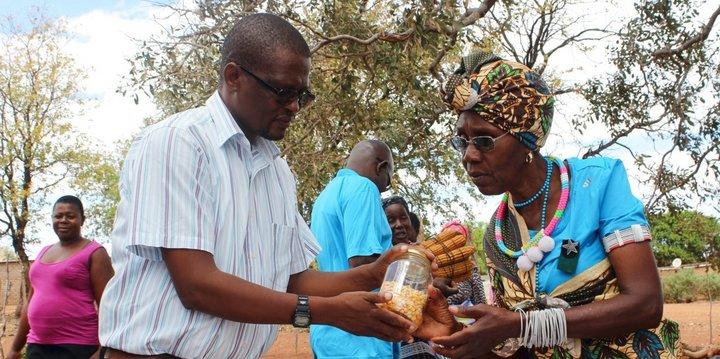Stepping it up for gender equality at Bioversity International

On the occasion of the International Women's Day, which this year urges us to pledge for gender parity and equal rights for all, Bioversity International has launched its Gender and Social Inclusion Strategy.
On the occasion of the International Women's Day, which this year urges us to pledge for gender parity and equal rights for all, Bioversity International has launched its Gender and Social Inclusion Strategy.
This strategy is a practical document that takes steps to increase gender and social equality through the research-for-development Bioversity International does and through the practices we adopt in the workplace. The aim, as reflected in this year’s UN theme for ‘International Women’s Day, Planet 50-50 by 2030: Step it Up for Gender Equality’ is to accelerate progress towards gender equality. At Bioversity International we see gender equality as both a human right and a way to support progress towards the Sustainable Development Goals. Investing in gender-responsive and socially inclusive research is a basic requirement for delivering the high-quality outputs and outcomes we are committed to producing.
Bioversity International’s vision is that agricultural and tree biodiversity nourishes people and sustains the planet. You might wonder: why are gender equality and social inclusion important in research that deals with trees and agricultural crops? Much of the diversity that exists at the ecosystem, species and genetic levels is the result of thousands of years of interactions between people and the environment. Men and women of this planet are part of the ecosystem and only when their rights and range of choices become equal can they fully harness the biodiversity resources they manage and through that improve their well-being.
Gendered differences – the social roles and identities associated with what it means to be a man or a woman in a given society or context – as well as other differences related to age, ethnicity, wealth status and other social characteristics, exist in every aspect of rural development: from the rural dwellers who gather and manage natural resources, to the people who make decisions about them in their village or country, to the access people have to information and resources, to the spaces they frequent and shape, to the freedom they have to make decisions and travel.
Social differentiation often results in marginalization or inequality among some social groups therefore a mindset change is needed and research for development organizations must embrace differences. At a landscape level, research has shown that men and women often use landscapes differently, exploiting different parts of it for different resources. Women’s home gardens might contain vegetables that cook quicker and provide essential nutrients to their families while men might travel to faraway places to catch bigger fish which they will sell at the local market. Men and women have different – and equally important – priorities and research for development stakeholders should embed this in their research and development projects.
How is Bioversity International planning to carry out its gender and social inclusion strategy? We aim to develop our collective capacity and confidence to integrate gender and social analyses into the design and implementation of Bioversity International’s research for development. For instance, Bioversity International has just published the third tool in a series designed to support researchers in adopting a gender lens throughout the research-for-development cycle. The first and second short and simple tools helped researchers ask gender-responsive questions and conduct gender-responsive data collection, whereas the latest release helps them communicate research findings in a gender-responsive way.
We also strive to attract, retain and empower men and women of all backgrounds to contribute to Bioversity International’s mission, relevance and innovation through a special focus on gender and diversity positive recruitment practices, mentoring programmes for young scientists and flexible working arrangements.
This gender and social inclusion strategy builds on Bioversity International’s long tradition of participatory research and is an integral part of delivering our 10-year institutional strategy 2014-2024.
Download the Bioversity International Gender and Social Inclusion Strategy
Photo: Inspecting the quality of the first seeds deposited in the Gumbu village community seedbank, South Africa. Credit: Bioversity International/R. Vernooy
